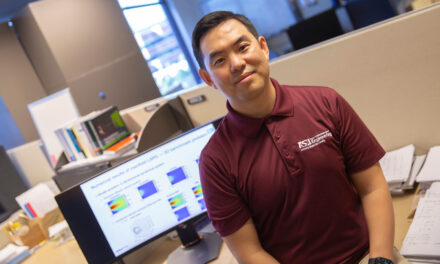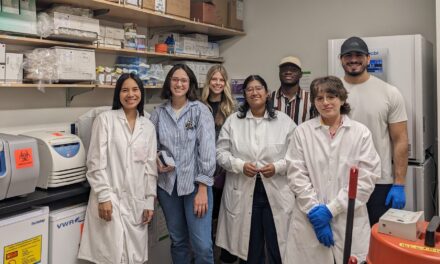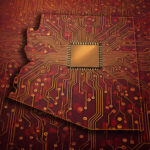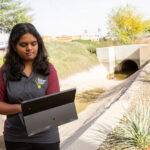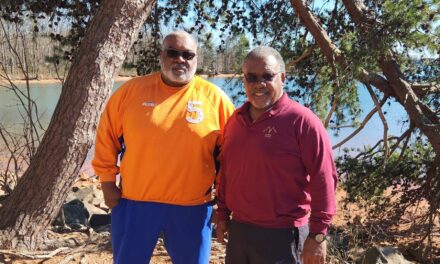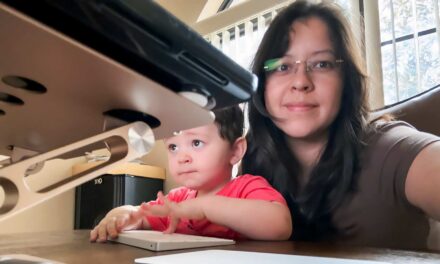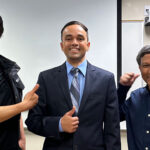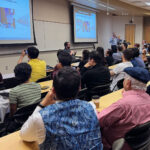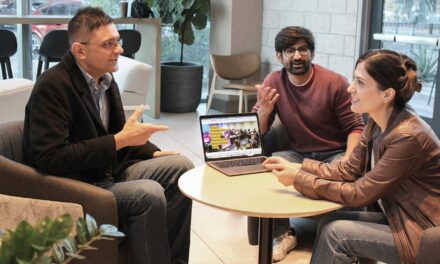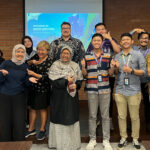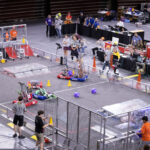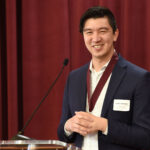
Ren’s CAREER Award confronts energy limitations facing internet of things
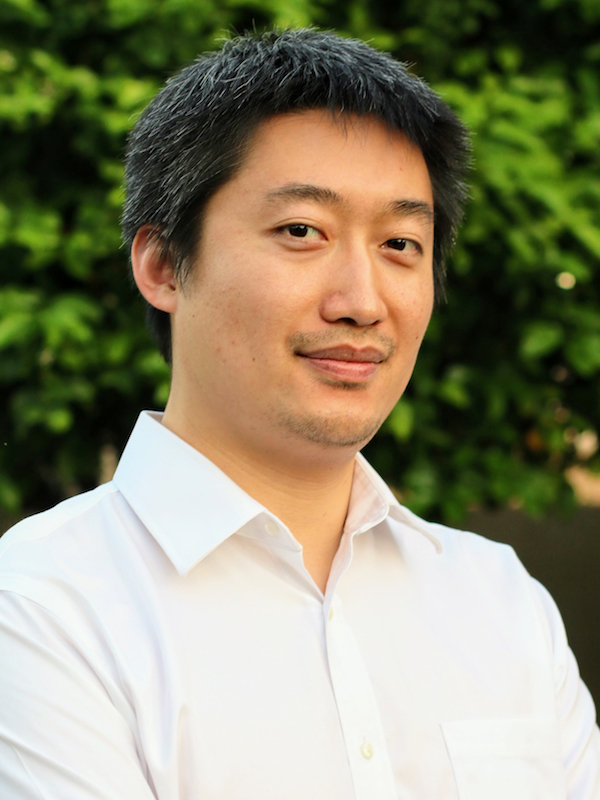
Fengbo Ren
The internet of things could very well be the next big and transformative shift in technology, forever changing how we interact with our world.
Though the thought of connecting everything around us — home appliances, city infrastructure, and wearables — represents exciting new possibilities, there are significant challenges to deploying such devices at scale. Armed with a $534,225, five-year CAREER award from the National Science Foundation, Assistant Professor Fengbo Ren seeks to develop practical and effective solutions to these challenges.
“The potential of this technology is to create big data on a scale that’s never existed before,” says Ren, of the School of Computing, Informatics and Decision Systems Engineering. “That data can be used to revolutionize how we do pretty much everything and enhance the efficiency of our society and economy across the board.”
While useful, the sheer amount of data produced by these devices presents a challenge for our data infrastructure.
“It’s projected that five years from now, internet of things devices will create tens of trillions of gigabytes of raw data, which the existing communication and computing infrastructure will be unable to transfer, store or process in real-time,” says Ren.
This staggering amount of data is due to a lack of a compression standard, thanks to the inherent variability of internet of things signals and sources. So much raw data breeds another key problem: sensor energy efficiency.
Many of the internet of things devices Ren is working to improve are remotely-placed sensors or wearables, relying on intermittent renewable energy production or batteries for power. Such energy constraints are particularly troublesome, as the majority of power is consumed by wireless data transmission.
“We’re looking at a generic way to compress these signals, but this must be effective and simple enough for the practical hardware deployment on resource-limited devices,” cautions Ren.
Ren thought a potential solution was compressive sensing, which utilizes randomness to encode sensor signals for efficient transmission and relies on existing knowledge of a signal to decode its information. Yet, Ren found in earlier studies that compressive sensing performed poorly with internet of things signals due to limited existing knowledge and individual variability.
To circumvent this, Ren and his team are developing a tailored compressive sensing framework, called data-driven compressive sensing.
“Although we do not understand these signals well yet, we do have a lot of data,” says Ren. “The key idea is to autonomously characterize signal models and capture individual variability by learning from the data. Then, we can utilize such knowledge to inform compressive sensing, information decoding and even decision making. The data-driven nature not only yields a stunning performance but also makes the framework universal for all internet of things signals.”
While there is a significant body of work devoted to this topic, Ren believes his CAREER proposal was attractive to the NSF because of his project’s scalable and tangible impact.
“The problem I’m looking at is a critical one,” says Ren, “There’s a lot of work going on in this area, but much of it is theoretical. We’re working with actual application scenarios and hardware constraints in mind and trying to bring our solutions into real-world applications.”


